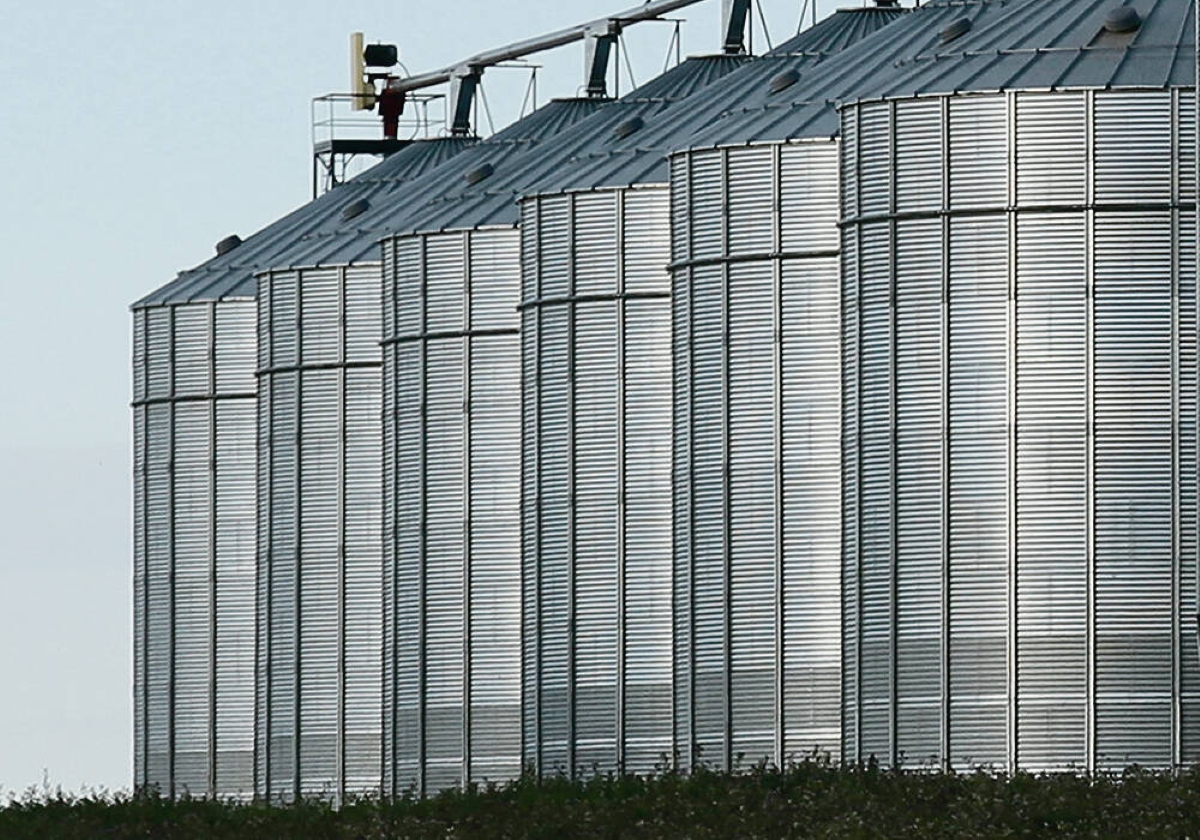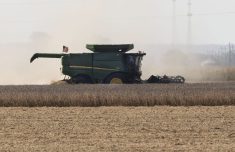The top executives at Canada’s major railways expressed their disappointment today in Ottawa’s decision to impose weekly targets on the amount of western Canadian grain that must be hauled to market.
At a transportation symposium in New York City, Canadian Pacific Railway president Hunter Harrison said he was irate with Ottawa’s March 7 announcement of weekly quotas that outlined how much grain CP and Canadian National Railway must haul to avoid fines as high as $100,000 per day.
“We’ve had some pretty extraordinary conditions to work under (this winter) … and I was … irate with the Canadian government and some of their comments about our inability to deliver grain.”
Read Also

Grain trader Bunge lowers 2025 profit forecast after closing Viterra deal
U.S. grain trader and processor Bunge on Wednesday lowered its 2025 earnings forecast following its merger with Viterra, and said it is overhauling segment and volume reporting to align with its integrated operations.
Harrison told investors at the conference that he will be having “eyeball to eyeball sessions with the Canadian government” to talk about the situation affecting grain movement.
CN president Claude Mongeau also expressed his displeasure, saying he regretted Ottawa’s “accusatory tone.”
“I think when you face a challenge of moving a 100-year crop in a very difficult winter … when you face up to the hard reality of that double challenge, it’s a perfect storm,” Mongeau said.
“I regret that the government has an accusatory tone singling out the railroad. They’re under a lot of pressure, I can understand that, but you would hope that the government would step back and look at the facts.”
Mongeau said Agriculture Canada set its official estimate of the Western Canadian grain harvest at 60 million tonnes as of late September. It was 15 million tonnes short of the 75 million tonnes actually harvested last fall.
Mongeau also pointed a finger at grain elevator companies.
“For the first five weeks of the crop year, the grain elevator companies could have moved more than 10,000 additional car loads if they had seen the crop and had started to actually move it to preposition and clear inventory from storage. They didn’t.”
Instead of singling out railway companies for their performance in an extremely cold winter, Mongeau said Ottawa would have been better off encouraging collaboration by all partners in the supply chain.
“I look forward, with winter behind us, to move as hard as I can to not only meet the government order of 5,500 cars (per week) if I can, but we will also find out what’s the capacity of the overall supply chain,” he said.
“How many cars can they unload at the waterfront? Are they (grain companies) going to be selling in the West Coast but also on the East Coast so we can spread the volume in all corridors? Are we going to act as a supply chain so that we can move more grain faster?”
Ottawa’s order requires the railways to move a combined total of a million tones of prairie grain per week from any point west of Thunder Bay, Ont., to any point in Canada, the United States or beyond for unloading.
CN and CP will have four weeks to ramp up grain movements to the imposed million tonne-per-week minimum.
Weekly minimums for each of the railways during that period have been set at 250,000 tonnes in Week 1, 321,5000 tonnes in Week 2, 375,000 tonnes in Week 3 and 437,500 tonnes in Week 4.
The order will remain in effect for 90 days and is renewable.
CN and CP will be required to provide Ottawa with a weekly report indicating volume demands and volumes of grain moved in each corridor.
Officials at Transport Canada declined to be interviewed, but Transport Canada official Julianne Martel said in a March 11 email that decisions regarding fines will ultimately rest with the Public Prosecution Service of Canada.
“The legislation provides that a fine of up to $100,000 per day may be levied against corporations if found to be in non-compliance,” Martel wrote.
“In the event that a weekly report indicates non-compliance, the minister can provide this evidence to the Public Prosecution Service of Canada, who ultimately decides whether to prosecute after considering … whether the evidence demonstrates that there is a reasonable prospect of conviction and … whether the public interest requires a prosecution. The amount of the fine to be imposed would then be determined based on those circumstances.”
Clearing last year’s harvest will not be an easy challenge, even with the return of warmer weather.
Mongeau said demand for rail service from most major business segments remains strong with volumes expected to remain high throughout the coming months.
The number of intermodal units waiting to be moved is unusually high, demand for potash is higher than projections, oil traffic is increasing and demand from coal and lumber shippers is also steady.
Sandwiched between growing demand from all of those business sectors are the remnants of last year’s record Canadian grain harvest.
“We’ve never had better visibility,” said Mongeau when asked about overall rail traffic volumes beyond the first quarter.
“When in doubt, the customers are reminding us very quickly of how much demand is out there.”
For more Western Producer articles about this subject click here.



















